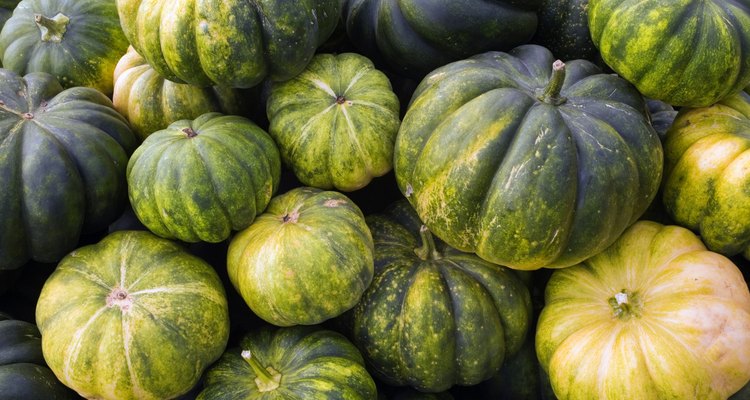
Design Pics/Design Pics/Getty Images
Similar in taste and texture to butternut squash, the calabaza squash is found in Central and South America as well as the Caribbean. Also known as ayote and West Indian pumpkin, the calabaza squash makes a good soup or pie and a healthy addition to any stew. Like other varieties of squash, the calabaza is low in calories and high in vitamin A and potassium.
Low in Calories
If you're looking for a tasty way to curb calories, calabaza squash may be your answer. A 1-cup serving of the vegetable contains just 35 calories. If you eat 2,000 calories a day, one serving meets less than 2 percent of your daily calorie needs. As a low-calorie food, you can eat a large portion and still not use up many of your calories. People get full on the volume of food they eat, not the number of calories. So eating more low-calorie foods like the calabaza squash satisfies hunger and might help you keep your calories under control.
Low in Carbs
Although the calabaza squash is considered a starchy vegetable, it's still a fairly low-carb food. One cup of the squash contains 8 grams of carbohydrates; compare that to a slice of bread, which has 15 grams of carbs. Carbohydrates in foods like the calabaza squash supply your body with energy and should provide the bulk of your daily calorie intake, making up 45 percent to 65 percent of your daily calorie needs.
Small Amounts of Protein and Fat
The squash is not a significant source of protein or fat. A 1-cup serving contains just 1 gram of protein and trace amounts of fat. Like carbohydrates, both protein and fat in your diet play important roles in the health of your body. Protein is needed to preserve muscle mass, as well as repair tissue and support immune health. Fats, like carbs, also supply your body with energy and are needed to help you absorb the fat soluble vitamins A, D, E and K.
Nutrient-Rich
The calabaza squash may be low in calories and protein, but it is rich in nutrients. One cup of the squash contains 5,460 international units of vitamin A, 246 milligrams of potassium and 15 milligrams of vitamin C. Vitamin A helps you fight off infections by boosting your immune system and is also essential for helping you see at night. As a mineral and electrolyte, potassium helps your body maintain fluid and mineral balance while playing an important role in lowering blood pressure. Vitamin C is also an immune booster and supports wound healing.
Related Articles
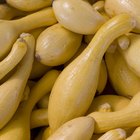
How to Clean Butternut Squash

How to Cook Papaya Pear Squash

Nutrition Information on Blueberries

Carbohydrates in Zucchini
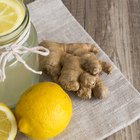
Can I Exercise on the Master Cleanse ...

How to Cook a Turban Squash
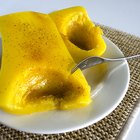
How to Cook Buttercup Squash

Baked Cubed Squash

Vitamins for Mental Alertness
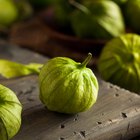
What Are the Health Benefits of ...

How Many Calories in a Baked Potato ...

How Fast Does Cooked Spaghetti Squash ...

How to Blanch Squash for Freezing
How to Grill Spaghetti Squash
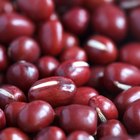
Nutrition Information for Adzuki Beans
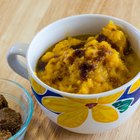
How to Cook Butternut Squash in the ...
How to Cook a Large Hubbard Squash
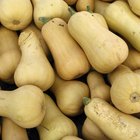
How Many Calories Are in Butternut ...
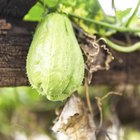
How to Grill Chayote Squash
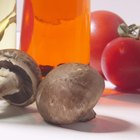
Mineral Oil Vs. Olive Oil
References
- University of Massachusetts at Amherst: Calabaza
- Centers for Disease Control and Prevention: Healthy Weight: Healthy Eating for a Healthy Weight: Eat More, Weigh Less?
- University of Arkansas Division of Agriculture: The Exchange List Sytem for Diabetic Meal Planning
- KidsHealth: Vitamins
- Academy of Nutrition and Dietetics: What Is Potassium?
Writer Bio
Jill Corleone is a registered dietitian and health coach who has been writing and sharing her love of food, nutrition and health with anyone who'll listen for almost 20 years. Her work has been featured on the Huffington Post, Diabetes Self-Management and Working Mother.
Photo Credits
Design Pics/Design Pics/Getty Images